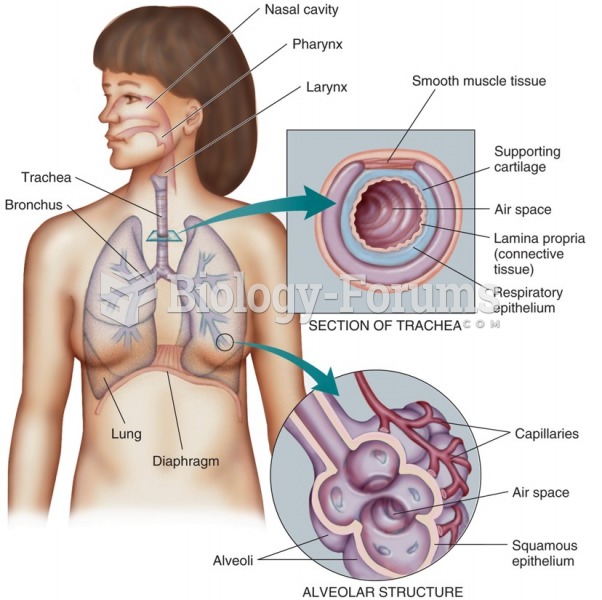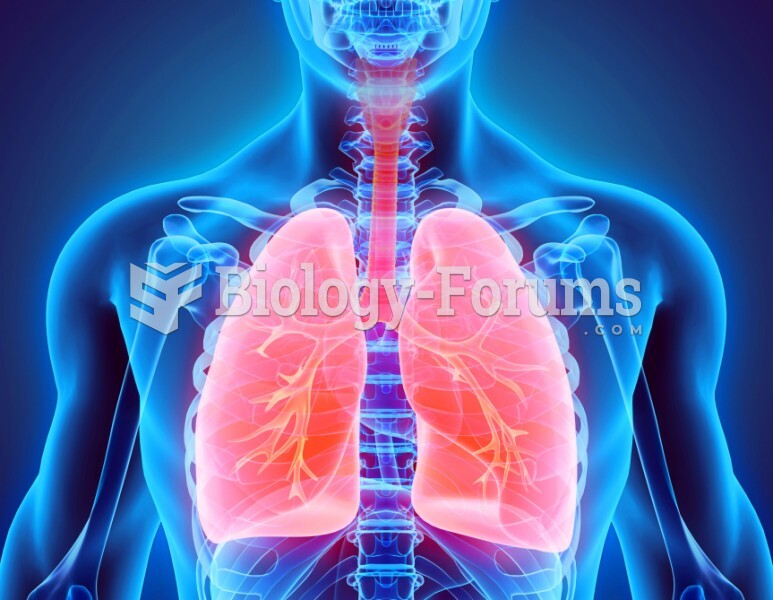|
|
|
Never take aspirin without food because it is likely to irritate your stomach. Never give aspirin to children under age 12. Overdoses of aspirin have the potential to cause deafness.
There are more sensory neurons in the tongue than in any other part of the body.
The familiar sounds of your heart are made by the heart's valves as they open and close.
It is believed that the Incas used anesthesia. Evidence supports the theory that shamans chewed cocoa leaves and drilled holes into the heads of patients (letting evil spirits escape), spitting into the wounds they made. The mixture of cocaine, saliva, and resin numbed the site enough to allow hours of drilling.
The B-complex vitamins and vitamin C are not stored in the body and must be replaced each day.







